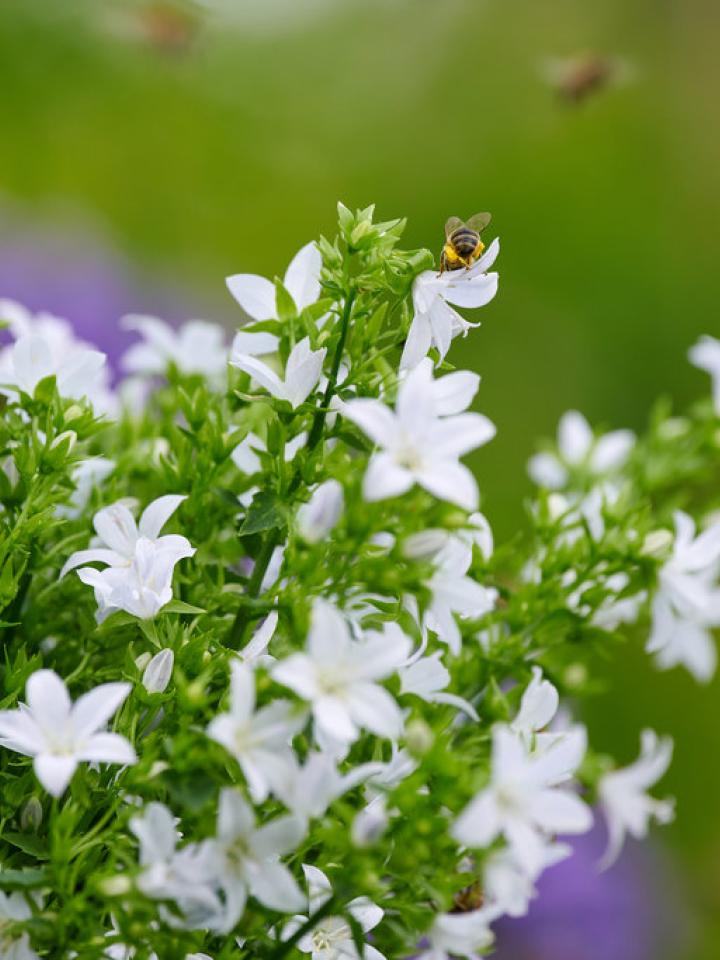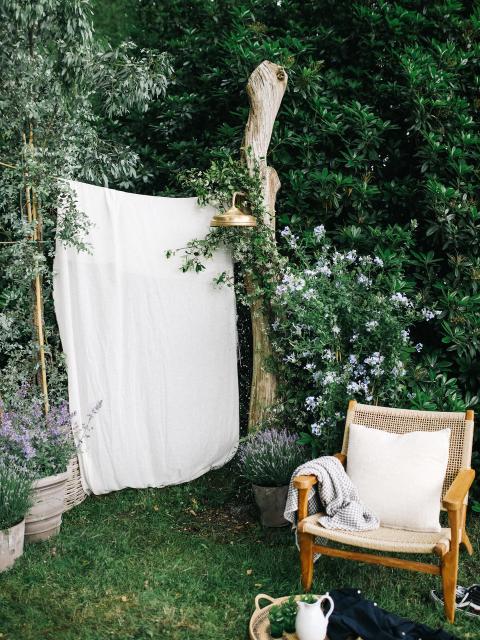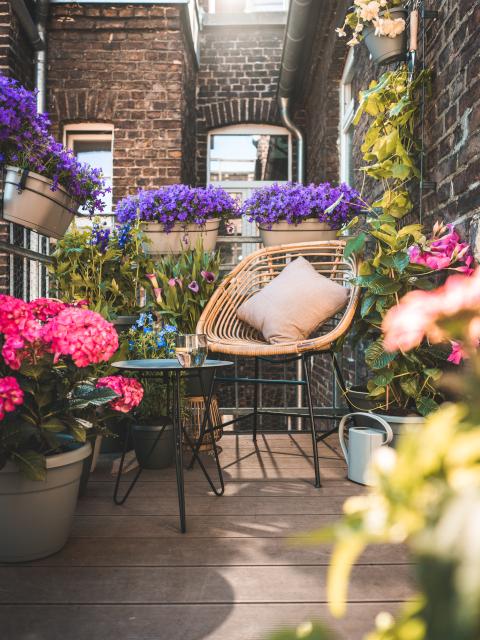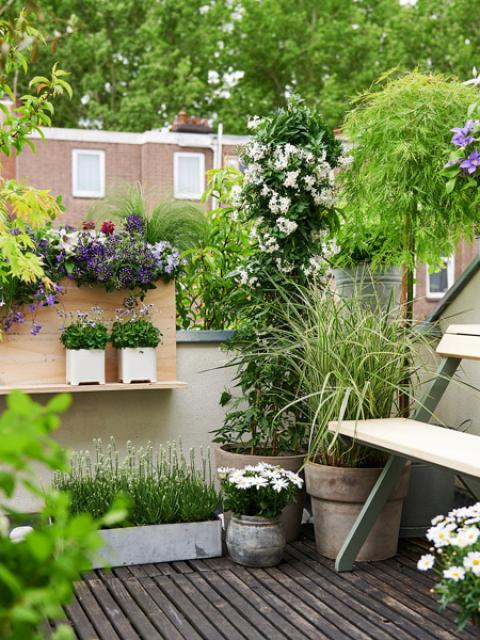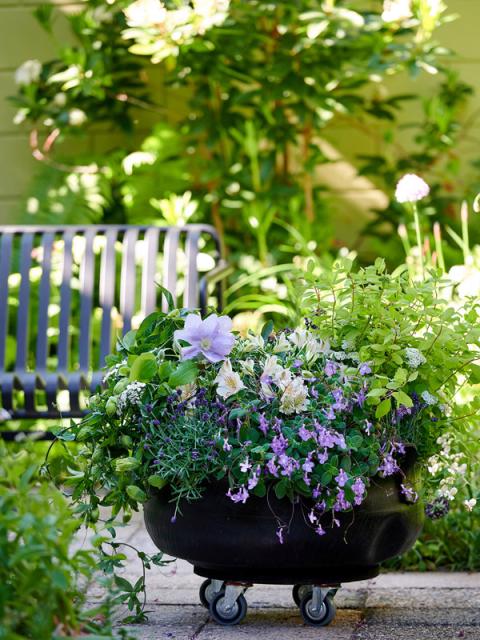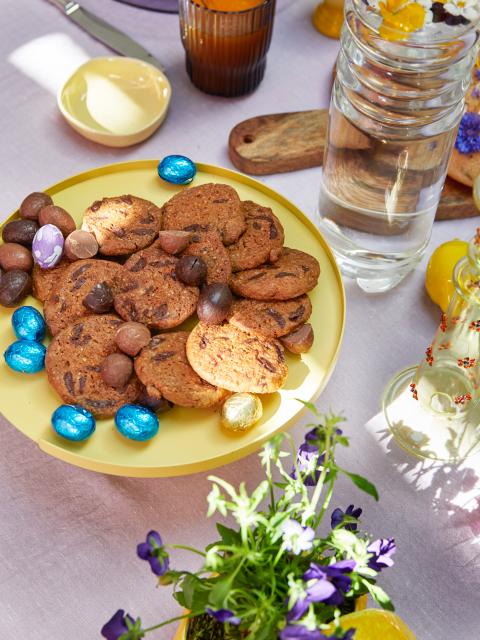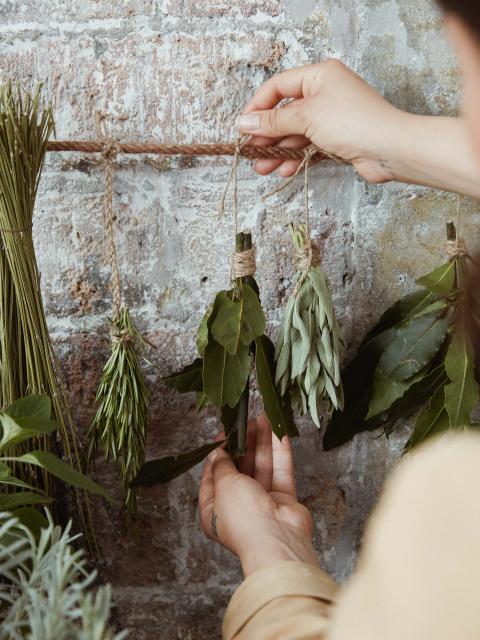Grow honey plants
Make the most of the warm spring and summer weather to reorganise your exterior space for the benefit of bees. Prioritise the useful and beautiful, with plants that produce nectar or pollen for honey bees, otherwise known as honey plants. Introduce a variety, so that bees can benefit from a varied pollen mix. Ornamental flowering plants like sunflowers, lantana, aster or mandevilla are perfect for bees, as are kitchen garden plants like sage, nasturtium, basil or blackberries. Once summer's over, prioritise bee-friendly autumn and winter plants, to help the bees all year round.
Limit the use of pesticides
Harsh garden chemicals are the bees' worst enemies. Invented to eradicate harmful insects, bees unfortunately have suffered a lot of collateral damage. There are now many non-chemical products that produce the same plant-protecting results, but without the components that harm the bees, so avoid using pesticides or buying pesticide-treated plants, fruits or vegetables. To further protect the plants in your garden, consider designing with companion planting in mind. It means creating a garden filled with a variety of different plants that all benefit and help each other. If you need advice, ask at your garden centre.
Let nature gain some ground back
Whether you have a garden, a balcony, a terrace or just a few pots on the windowsills, increase diversity and plant as many organic flowers as possible. Forget having a neat garden: if you're lucky enough to have a lawn, reserve a wild space in a corner where you don't mow, to allow small flowers and so-called weeds (such as ground ivy, daisy, dandelion and tansy) to develop. The pollinators will then take advantage of this environment to forage.
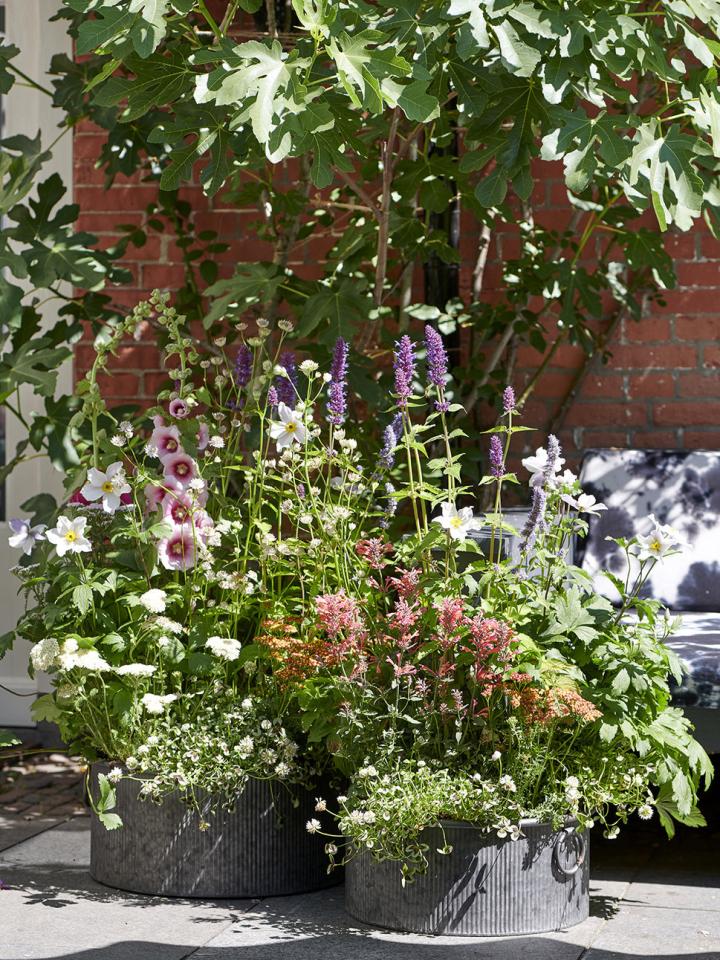
Give them a house and home
Bees are most active in spring and summer, but they need food and shelter all year long. Contrary to popular opinion, not all bees live in hives together. Place a bee hotel in your garden to help the solitary bees that make up 80% of the total bee population. A bee hotel is a place where the insects can build their nests in peace and quiet. You can buy one ready to place in your garden, or make your own DIY version. The bee hotel is a fun, playful activity to make with kids, and the perfect opportunity to teach them all about the importance of bees. That way, we can guarantee that bees will be with us for many years to come.
How are you giving bees a helping hand? Let us know on Instagram and Facebook using the hashtag #thejoyofplants.

